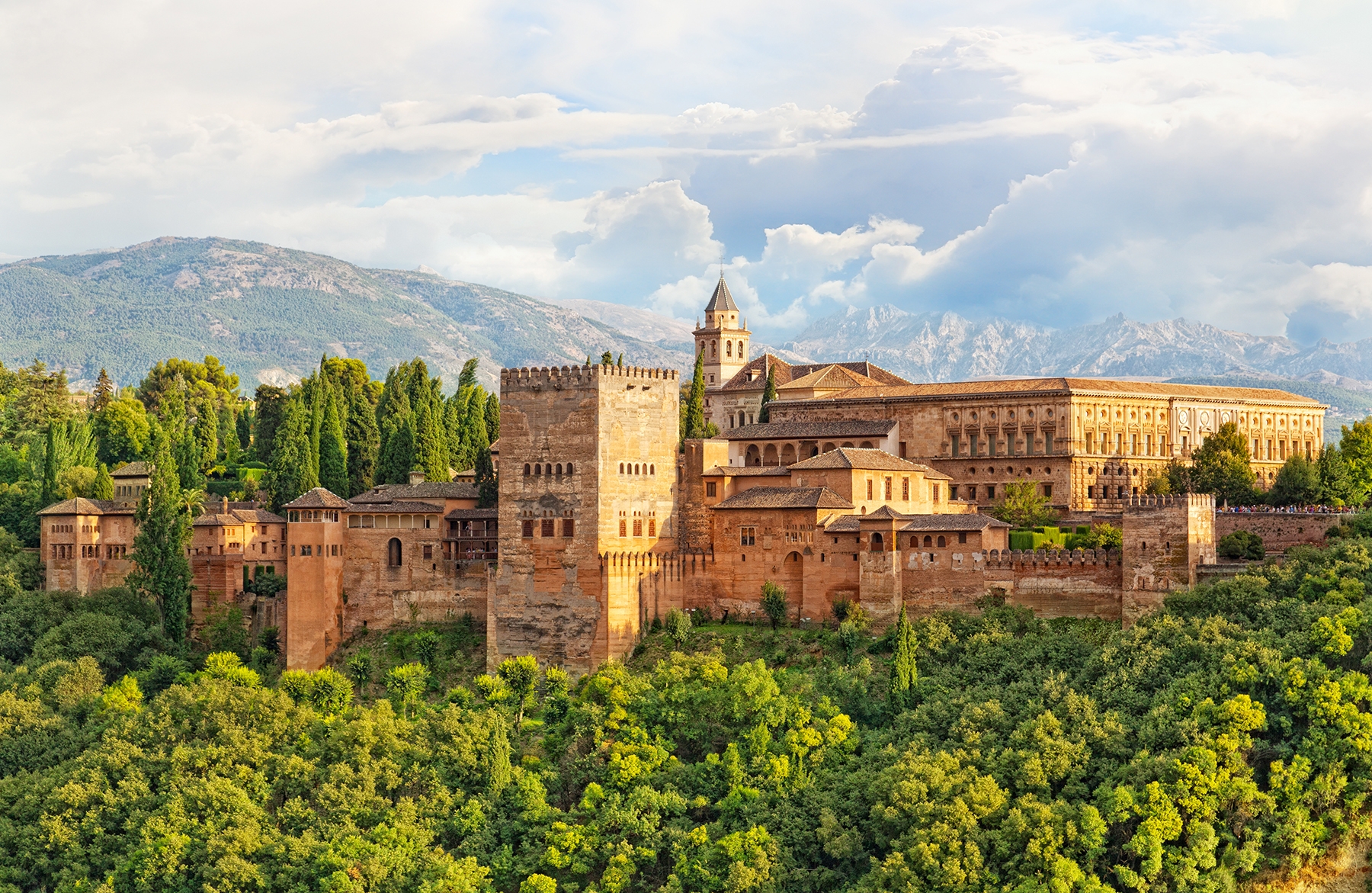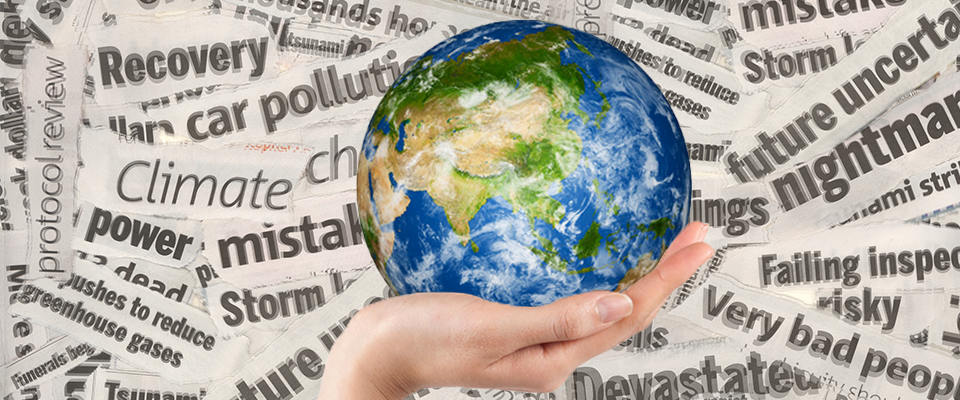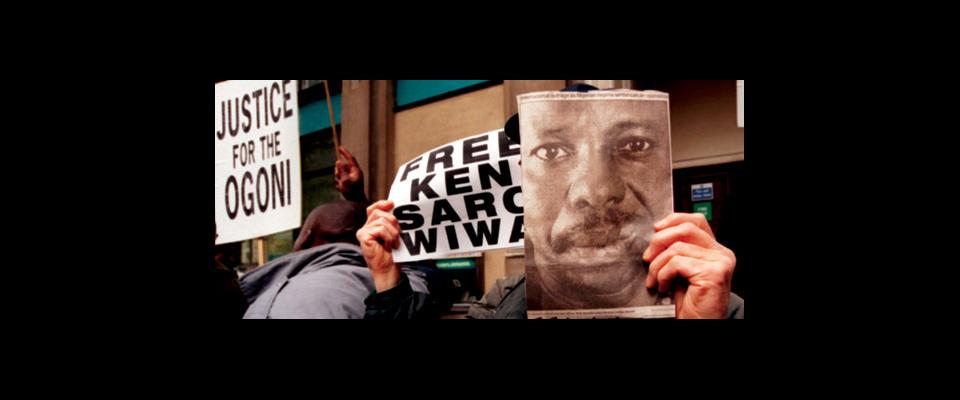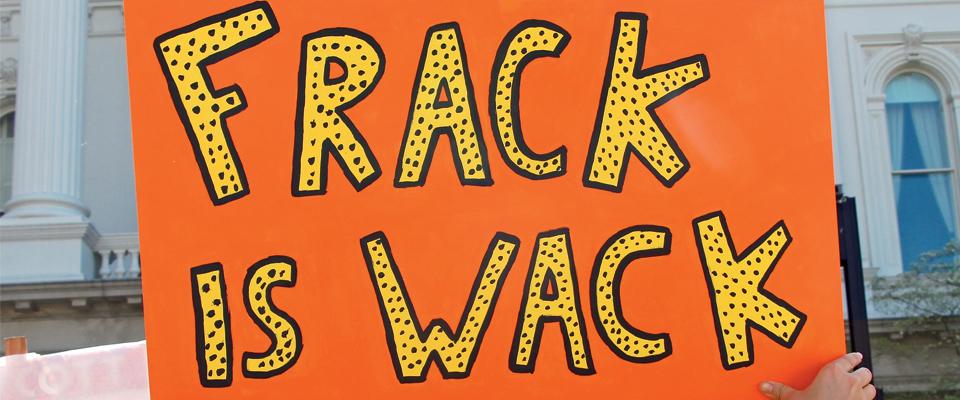Here’s the thing: The climate is warming, our population is growing, resource consumption is surging, and it isn’t looking so great for us—or our fellow earth-dwelling organisms. Speaking of which, the UN just released a report warning of “unprecedented” decline in environmental health and the threat of imminent extinction for some 1 million species.
I know, you’ve heard it a thousand times. Those environmental journalists just won’t leave you alone!
But it’s not so easy being an environmental journalist right now. As the earth hurtles towards an uncertain future, writers and reporters are also navigating uncharted territory. When it comes to writing about our predicament, how do you tell a story that is truthful without being totally depressing? Appropriately alarming without being alarmist?
I took my questions to the pros: James Fahn and Mark Schapiro, environmental writers and professors at the UC Berkeley School of Journalism. Over the course of several phone calls, Fahn and Schapiro, who teach a graduate course on “Earth Journalism,” spoke to me about the state of environmental reporting.
These interviews have been edited for length and clarity.
What exactly is earth journalism, and how does it differ from environmental journalism?
James Fahn: It’s broader than just environmental topics, topics related to the environment and natural resources. It’s about climate change and loss of natural diversity, public and human health, and politics.
In the U.S. and California issues are treated much more seriously and holistically. For example, today we understand that transportation policy and housing policy is climate policy. All of these issues are understood to be linked and are treated as such.

Mark Schapiro: When I teach at the J-School I call it environmental journalism. They both are correct.
I think earth journalism might be a better term. The root of environmental journalism is the belief that the environment is separate—you have a political reporter who covers politics, a crime reporter who covers crime, and an environmental reporter who covers the environment. It’s as if the environment has few implications for all the other issues that the media covers.
Earth journalism might be a more encompassing way to describe it. It makes you understand that the environment, the earth itself, is an organism with ecological systems that are critical in our ability to sustain ourselves.
But you can’t give a full picture of all the forces at play and all the ecological systems in every piece.
JF: That’s true, you don’t always have the time or space. I encourage journalists to cover a wide variety of issues: one day housing as a climate issue, another day housing as a food issue. Some of the best fisheries stories are in the food and dining sections. You cover the issue from many different angles. Not just a technical or scientific story, but also a human story. And it is a story.
MS: This is all about the fundamental elements of storytelling. To do an effective earth journalism story, you have to find place, characters, actions, tension. And the ways in which whatever is happening is impacting [the characters’] ability to sustain themselves. The essential ingredient in storytelling is conflict between one set of interests and another set of interests.
How effectively is earth journalism being done right now?
JF: It varies from place to place. In places with a lot of environmental concern—think blue state America—there’s pretty good coverage. In other parts, it doesn’t get the coverage it deserves because there’s a reluctance to report on issues like climate change openly.
But I think it’s changing in the U.S., probably because of extreme weather events and understanding that climate change makes extreme weather more likely.
MS: You know, it used to be hard to sell an environmental story. And I think climate change has changed that. It has contributed to what I think is a lot of great journalism related to environmental questions. And that is in spite of the fact that many newspapers are shutting down.

There’s a great concept in the earth sciences which is the trophic cascade, the idea that one thing leads to another leads to another leads to another. Hotter weather leads to new bugs leads to public health crises, and because of that people can no longer subsist, and social systems fall apart. If you look at environmental journalism as identifying the trophic cascades, you realize how everything is connected. You can follow the cascades up and reverse engineer your way to identify the forces.
Not every story is going to be a big climate story. But following those threads is going to give you a more complete picture of the ecological systems that sustain the earth. I don’t like the term “natural systems,” because that presumes there’s some natural state.
But it seems like the kinds of disruptions you’re describing presume a natural state.
MS: Let’s put it this way: The [environmental] conditions that have reigned for the period in which humans have thrived, which is called the Holocene, are no longer the conditions we’re living in. So, we’re in completely uncharted territory in terms of the ability to predict the future based on the past. There are high levels of disruption of those patterns that were perceived as being natural.
Recent news suggests that, no matter what we do, we’re sort of screwed, climate-wise. How should the narrative change now that we’ve reached a tipping point?
MS: It’s totally critical to ask, who is the ‘we’? Some of us are already screwed, and some of us are going to be protected from being completely screwed for at least another couple hundred years.
I get this question all the time—is it over, is there hope? But we don’t really unpack it. Are we screwed here in Berkeley? Things are getting a little hotter and drier, but it’s not a bad place to live.
There are ways to respond. We can slow down the atmospheric turmoil by reducing the fossil fuels. We’re already in climate change, so the idea that we can stop it is ridiculous. The question is what can we do to slow it down?
JF: I think we’re in pretty deep trouble. The problem is, there’s a huge lag time in the atmosphere. The carbon dioxide that we emit can last for 100 years, so the effects we’re seeing today are partly the result of what we did 25, 50, 100 years ago. And we’ve only increased the emissions over time. So how do you tell that to people? It’s really hard.
So, how do you do that?
JF: One approach is to report more on solutions. It has gotten easier because a lot of the solutions have gotten a lot cheaper, a lot more affordable.
Areas where we still struggle are transportation—people love their cars. But even there, there are solutions—electric cars, et cetera. So I think, yes, we need to make the urgency more clear, but we can also mix in reporting on the solutions, saying “this is viable, it’s not going to be easy, but we have a way forward.”
Environmental journalism is often conflated with environmentalism. What’s the difference?
MS: Journalists are not activists. The distinction is so clear. The criteria are: Does your information hold up and are you allowing yourself to test you own hypotheses? It’s the scientific method applied to journalism. Like a scientist, the journalist applies the criteria—question, hypothesis—and if you come up with results that you didn’t expect, then your obligation is to report that as well.
And yet, environmental journalism suggests an inherent desire to enact change. At what point does that cross over into activism?
JF: Journalists believe that the environment is an important topic to cover. It’s important for the public to be aware of these issues and, yes, at some level to act on these issues. What makes us different from activists is we don’t have a specific agenda. We will report on policy options, different kinds of solutions. We’re reporting on climate change and we think it’s an important issue, but we don’t claim to have the answers and we’re not actively advocating certain solutions.
You know, it’s not just journalists who face this issue. Scientists have also been grappling with this. The traditional belief is that they’re just supposed to do the research. But if you do the research and discover that there’s a threat to human civilization….at what point are you required to speak out?
I imagine there’s some concern about preaching to the converted—people like me who consider themselves environmentally aware because, you know, I recycle. Who’s your audience?
MS: You. It’s not about telling you how to live. People I have met are like, “Oh yeah I have a swimming pool, but I recycle and I drive a Prius.” And I say, “Hey man, I am not here to judge.” My job is to tell you what the latest information tells us about the world right now. Then you have to decide what to do about it.
The audience is people in the world and people interested in the world around them. I don’t write for climate deniers because their minds are not going to change. Environmental journalism presumes some basic level of knowledge. I write for people who are curious.
Alarmism is a risk in environmental reporting, but, given what we know, should we be more alarmed?
MS: The danger of being more alarmist is the tendency to be apocalyptic. The alarmism has to be more precise. Here’s a real example: “The consequences of holding the rising sea level at bay in San Francisco are going to cost millions of dollars and therefore you—resident of these communities—are going to have to pay higher taxes.” I think we should have more targeted reporting that actually identifies these precise consequences.
I think overly alarmist writing only gets people to throw their arms up and walk around feeling vaguely uneasy. And then they run into an environmental journalist and say, “Well, I recycle.”
But if the facts are alarming, should writing about them in an alarming way really be called “alarmist”?
JF: Yeah. [Laughs] Or is it just factual reporting?
You know, it’s interesting the way views change on this. Twenty years ago there were a lot of activists and advocates arguing we should not be focusing on adaptation—adapting to climate change, trying to promote policy or behavior like building sea walls or preparing for fiercer storms. We’ve known that climate change is happening for a long time now. But 20 years ago, a lot of climate change activists said it was irresponsible to focus on adaptation because it assumed that [climate change] was going to continue.
[In their view] accepting that climate change is going to happen no matter what created a moral hazard. But even 20 years ago, it was important to focus on adaptation. Journalists had to do the responsible thing and say that.
If focusing on adaptation was taboo then, what’s taboo now?
JF: There are some topics we’re just starting to grapple with, and one of them is geoengineering. This is the idea that we can try and counteract the effects of climate change, or even the cause. The most commonly discussed idea is that we reduce solar radiation to the earth—using aerosols or satellites that partially shade the earth. These are all imperfect things because they might have unintended side effects like reducing agricultural output. There is also talk now of simply sucking carbon dioxide out of the atmosphere, but who is going to pay for that, and isn’t it cheaper to just reduce emissions?
The problem is right now there is not a lot of public discussion about these proposals. Just this March, the UN was blocked from assessing geoengineering technologies. Some governments, of course, don’t want to do any studies on climate change. And as with adaptation in the past, others may consider geoengineering a moral hazard.
But, basically, climate change itself is a form of geoengineering. We’re doing this immense unplanned experiment on the earth, and it’s having all these unintended consequences. So, what happens if, one day, some country decides that they can’t accept the impacts of climate change and they decide to do something on their own—geoengineering—to prevent it? We need a place to talk about that.
Is climate change the only issue? What about more traditional environmental journalism?
JF: No, not all climate journalism is about the environment and not all environmental journalism is about the climate. There are other global issues: loss of biodiversity, mass extinction caused by humans and also, I would argue, the oceans—acidification, pollution. Environmental health is the most underreported issue and the fourth leading cause of mortality.
The thing about climate change is that it’s such a big issue and affects all the other issues.
MS: You don’t have to be a climate journalist. You can have a deep concern about wildlife diversity or ocean acidification. It’s not just the atmosphere, the oceans. It’s the trophic cascade.
But if we’re talking natural systems and public health, the chances are high there’s going to be a climate dimension. Which is worth thinking about moving forward. Climate is everything. It’s the conditions that we’re in.





















